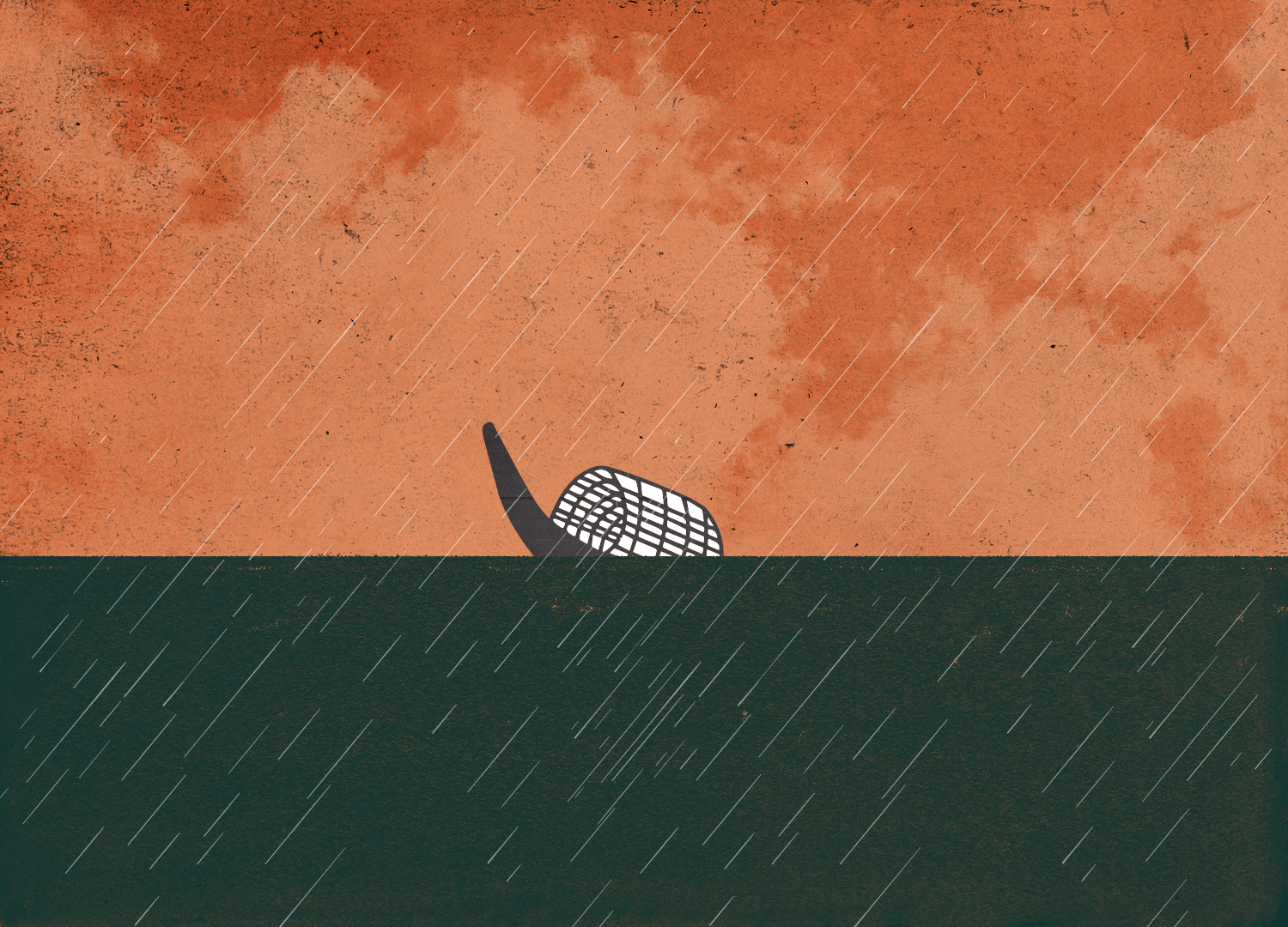The monsoon tempest rocking Awami League’s boat
By waging war against its people, the current government has reverted to a state of war where tyranny reigns supreme. As citizens, it has thus become incumbent upon us to resist.

Student-led movements have a long and illustrious pedigree in Bangladesh and greater South Asia. It was a student-led movement in 1952 that secured the right for East Pakistan’s Bengali majority to use their mother tongue as an official language. It was a student-led movement in 1969 that brought Ayub Khan’s autocratic government to its knees and prepared the grounds for the 1971 Liberation War. Historically, along with the working class, students have always been at the vanguard of any progressive struggle not only in South Asia but across the world.
Whereas the Awami League, which rules Bangladesh today, aligned itself with students both in 1952 and 1971, it today finds itself on a collision course with a new generation of student activists. Sheikh Mujibur Rahman, Bangladesh’s independence leader who led the Awami League at the time, once seemed hesitant to accede to the demand of university students to declare independence, which would have meant abandoning his hope of becoming the prime minister of Pakistan.
Before bowing down to mounting public pressure, his daughter, Prime Minister Sheikh Hasina, too, was equally reluctant to reform the quota system lest it herald a loosening of the tight grip she and her party have on power. Or maybe it was pure hubris. Students were once the tailwind that billowed the Awami League’s sails. Today, they are the raging monsoon tempest rocking its boat.
Until recently, the quota system reserved 30% of highly coveted government jobs for the descendants of 1971 freedom fighters. Hasina long claimed it as just, for it gives due regard to the sacrifices the veterans made to help Bangladesh achieve independence.
But we will be deemed purblind if we fail to recognise the authoritarian premise upon which her argument rests. If succinctly described, it amounts to as follows: Because of the role her father played in leading the independence movement and the tragic circumstances under which her father and most of her family members were assassinated in 1975, Sheikh Hasina has an exclusive right to rule Bangladesh — a special quota, if you will — no matter the consequences for the country’s democratic future.
It was thus a grotesque sense of entitlement and a warped sense of victimhood that led Hasina to equate the student protesters with the descendants of the Razakars, a now-pejorative way to describe wartime enemy collaborators.
Hasina has a long track record of employing denigrating rhetoric against her opponents, hesitating little in revealing the violent fantasies she harbours about her enemies. She once infamously expressed her desire to throw her arch-rival, Khaleda Zia, off the newly built Padma Bridge. But her use of the term Razakar proved to be a denigration too far. It was the last straw that broke the camel’s back.
Her remark also betrays an often invisible but abidingly present caste hierarchy established immediately after the independence war based on descent, with Hasina, her extended family, and Awami League-certified descendants of freedom fighters occupying its very top ranks.
The Kshatriyas who follow this Brahmin clique are such henchmen as the Chhatra League and myriad other Awami League offshoots. Vested with the responsibility of maintaining the status quo with brute force, they are just pure enough to swoop up whatever government jobs that couldn’t be filled up by their paymasters.
Even if they often serve as technocratic ministers and members of the parliament, the business elite of Bangladesh, the Vaishyas, keep their children away from joining the state bureaucracy. Their entitled progeny are instead sent abroad to receive a quality education and lead a prosperous life by spending a tiny fraction of the wealth their parents have hoarded by avoiding paying taxes and by denying their employees a livable wage — all possible thanks to their collusion with whichever political party is in power.
Toiling under these three dominant castes is the rest of the people — the Sudras and the untouchables. Each is a mere cog in the economic machine, but together, they keep Bangladesh afloat. It is thanks to their blood and sweat that Bangladesh’s GDP rises every year. It is due to their precarious existence that Bangladesh’s position remains stagnant on the Human Development Index. And now they have had enough.
Today, it is once again proven that an authoritarian regime is at its weakest point the moment it considers itself invincible. Out of touch with the lived experiences of ordinary Bangladeshis, the Awami League has misread the brewing public discontent over rising inequality, a flagging economy, out-of-control inflation, and a lack of employment opportunities.
And when all the streams of discontent found their confluence in the quota movement, the resulting tide washed away every impression of invincibility that steadily accumulated around the Awami League over the last fifteen years.
The question remains, what now? To answer this question, first, we must recognise the ‘social contract’ between the people of Bangladesh and the ruling party, where citizens transfer the right to govern themselves to a person or assembly of persons — the Sovereign — in exchange for peace and security, is permanently broken.
By unleashing the tide of brutal violence against unarmed protesters, the Awami League government has proved once again that it can offer us neither peace nor security. By waging war against its people, the current government has reverted to a state of war where tyranny reigns supreme. As citizens, it has thus become incumbent upon us to resist. The students have shown the way. Now, it is our turn to follow suit.●
Siddhartha Dhar is a Bangladeshi writer.